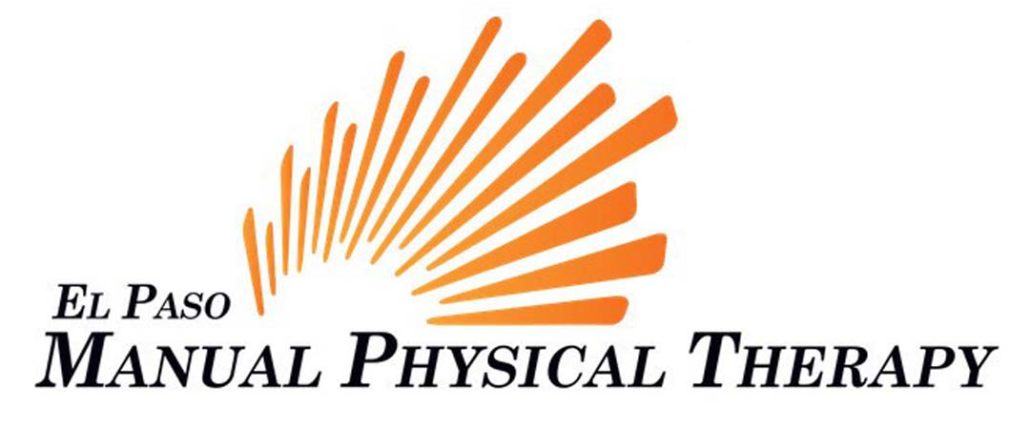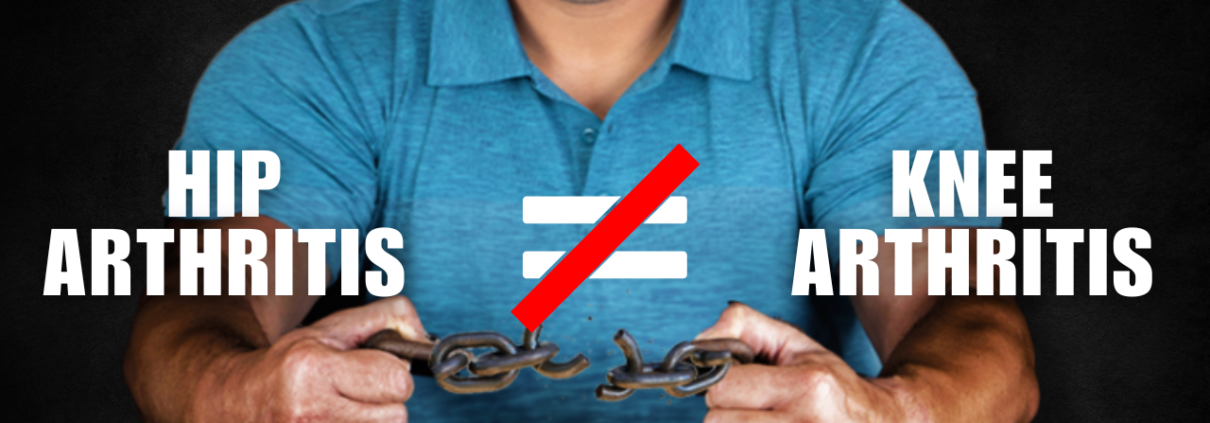Relieving Painful Bone-On-Bone Hip Arthritis: The Top 4 Stretches You Need to Try
In this video I’m going to show you the four best stretches for bone on bone hip arthritis, be sure to do these exercises in order so that you can get the most motion out of the fourth exercise I’m going to show you today.
My name is Dr. David Middaugh. And I’m a specialist physical therapist at El Paso manual physical therapy. And this channel is dedicated to helping people stay healthy, active and mobile, while avoiding unnecessary surgery, injections and pain medications. Please consider subscribing to our channel so that you don’t miss out on any of the helpful videos we post each week.
The first choice we’re going to do is kind of an exercise as well, but you’re going to see how it’s going to set you up to move better. It’s called a bent knee fallout. So you’re going to lie down on your back on the floor on the bed anywhere you like. And then you’re going to have your knees bent up just like this at a comfortable position, then what you’re going to do is slowly let one of your knee fall out, and then go the other direction.
And now you’re only going as far as you can, without stretching your joint very much, you should feel like just a mild stretch. Like it’s the end of your hip motion like that’s all you got. If you have a very stiff hit, you may only go out a little bit compared to what I’m doing here, you might only go out this much. And that’s okay, then what you’re going to do is just go here for about one to two minutes, you could count about 30 reps on each side as well. And you’re just going to Nice and easy. Move your legs, one at a time out in it.
Now the reason why you wouldn’t do this, move them both out and in together, which isn’t terrible. But the part of this exercise and stretch is to allow one hip to learn how to move independently of the other one. So it’s a bit of a stability and control movement as well as it is an exercise in a stretch. And what you can do as you feel comfortable as you’re getting into your second half of the set of the exercise here the stretch is begin to push it a little further.
But watch as I get to the end of my motion here. If I push my knee any further, the rest of my leg wants to go my hips go my waist goes over, you want to only push very little into that motion, you don’t need to stretch aggressively at all on this one. Once you’ve accomplished this for about a minute or two, then you’re done with this exercise, we’re going to move on to the next one. The second exercise is a butterfly stretch.
And that’s a more commonly seen exercise you’re going to look to put your feet together soul to soul, the bottom your feet together. And then here you are going to push your legs out as far as they’ll go comfortably you can bounce at the end, some people like to do that, and just let their legs relax.
That’s the biggest part though is you want to relax your muscles as much as possible. In this position, you want to allow your knees to fall out as much as possible. But don’t force it or over stretch it. If you feel like you can tolerate a tiny bit of force like this. That’s okay, the problem is if you force it or stretch it, you can begin to activate muscles that don’t allow you to get the full range of motion at the ball and socket joint of your hip.
So you want to just hang out there, do a little bounces. This is a short stretch, we’re looking to do this just 30 seconds to a minute, you can do three rounds, if you want to No need to do much more than that. If you did the bendy follow up before this. Like you should be doing these exercises in order, then you should get more motion out of this butterfly stretch here.
Now before we’re done with this exercise, do want to let you know that you can do the bent knee Fallout and this butterfly stretch more if you like all these exercises you can do to your heart’s content. Really, if you keep gaining motion, out of all of these stretches, keep going I would maximize all the motion that you can get.
Every time you do these stretches. Just like that the closer you bringing your feet generally the better the stretch. And then one more tip on this butterfly stretch. If you think about tightening up your butt muscle when you’re dropping your knees outwards, that does tend to get you an even better stretch. So it’s going to make you want to lift your hips up like that, as you push your knees out.
You don’t have to go super hard, but it does get the ball and socket joint to open up a bit more, which is the best way to stretch if you can make your joint stretch by contracting your own muscles that is optimal for the bone in the joint for the arthritic bone on bone, hip joint, you can get the best motion because you’re moving the joint the way it’s intended to by the muscles themselves. Rather than forcing it out right here. It’s from an external force.
The joint mechanics are different than if you use your muscles to achieve the motion. For the third stretch, you can do a knees to chest stretch. So it’s going to be one leg at a time. You can start with your knees bent or flat. It’s a lot easier if you start with your knees bent. So then you’re just going to grab the front of your knee with your feet like this, you can do hand over hand or interlock your fingers, it’s up to you that you’re going to look to pull your knee in towards your chest as much as it will go.
Now, oftentimes, this is a painful position to get into, if that’s the case for you, if you’ve got bone on bone hip arthritis, it’s blocking you from going any further, just hanging out at this position right here, don’t push it into a super hard stretch, then what you’re going to do next is push against your hand.
So if my hand wasn’t there holding my knee, what it would look like is if you’re if as if you’re forcefully pushing your leg down, what we’re trying to do is activate the glute muscle. So holding your leg here, gently activate the glute muscle to push your knee away and hold it there for 30 seconds. If you can do 30 seconds, because it’s kind of a long time, especially if your hips hurting quite a bit, just to 10 seconds or 20 seconds, see what you can tolerate. And don’t do it super intensely.
If I had to give you a number on a zero to 10 scale, if 10 was as hard as you possibly can just do it like a three or four, it shouldn’t be very, very intense at all. After about 30 seconds or so you can relax and see if your knee will come in a bit more, don’t let go. Don’t put your leg down yet, see what motion you can get now, because as I was saying earlier with the last exercise, you’re using your muscle to move your joint properly, you might get a bit more flexibility coming in words.
So let’s do three rounds of that each side I want to have in a contract my leg again, my glutes, it’s pushed my knee away from my body. And I’m just hanging out with my hands. It’s not super intense, about a two or three out of 10. I feel my glute working right here a little bit in the hamstring but mainly in the glute. And then after 30 seconds, relax, see if you can pull it in for maybe 5-10 seconds on bouncing a little bit, trying different angles just to get some more mobility out of that hip.
And this is a real gentle way to stretch the ball and socket joint for that bone on bone. hip arthritis, I’m going to do one more round here, push away. heavy, heavier, is not better necessarily or harder is not better. You don’t want to push super hard. When you push super hard.
The reason for that is because you’ll start to activate too many muscles. And you’re not going to get the same joint mechanics that we’re looking at getting. If you activate light, if you push your leg away from you lightly, and you focus on getting this to just gently turn on, that’s when you get that ball and socket joint to move better. So just hold like that 30 seconds, and then you can relax. If your other hip bothers you, you can do the exact same thing on the other side to get that hip to feel better as well.
Now the fourth exercise, which is going to get your full range of motion, as much as you can get right now, based on your mobility is a hip arc exercise, you’re going to have to lie on your side just like this, hips a little bit bent knees a little bit bend, just get comfortable, you might put a pillow under your head, then what you’re going to do is bring your knee up towards your chest, you can give it just a tiny bit of overpressure as long as it’s not hurting your hip in any way, a little bit over pressure, and then you’re going to push it back in this direction.
When you push it back in this direction, what I need you to think about is tightening up the butt muscle, the butt muscle is extremely important here, you have to make sure that every time your leg comes back in this direction, you’re using this muscle to do it not too much hamstring, the hamstrings going to work some that’s a given, but you need to drive the majority of the motion with the glute muscle.
So you’re going to do 30 reps here. So come up like this, and then tighten the butt muscle right here and go back, come up and go back and tighten up, up, squeeze the butt up, squeeze the butt. Once you’ve gotten that butt muscle working, what you should begin to feel is a stretch on the front of your hip when you tighten the bump muscle. And that’s good.
That’s what you want to have. But you don’t want to stretch super hard that can be aggravating on your hip joint, a lot of compression from that. So just stay at a gentle stretch on a scale of zero to 10. About a two or three stretch intensity is all you need.
You don’t need to go super aggressive, you’re better off doing more reps like this, then you are stretching more intensely each rep nice and easy just like that if your leg gets tired and floating up and down like this, or forward and back, you can take a break. That’s fine. I could tolerate more but, but just to show you how what a break would look like you would just stop like this. Take your 10 seconds 20 seconds a minute if you need to whatever you want.
And then keep going until you do 30 reps and if 30 reps is too much for you right now. That’s cool. Do 10 Do 20 And as you practice this and get one mobility and strength, you can improve how many reps you’re doing all together all at once.
With small, tiny rest breaks in between what you should feel, as you’re wrapping up the reps here is better mobility, like you can go further back further up a little more ease, and a little stretching the front of the hip and a little tired in the glute muscle, nothing that is overbearing, nothing that is hurting. If it’s hurting you to do this, you should not be doing this, you need to find other exercises that do the do feel good for you, or modify these exercises, maybe no go so far, start with a small motion just like this trying to still engage so that it’s not hurting you.
Now there’s just one more thing I want to mention to you. If you get popping or clicking or grinding sounds in your hip joint with any of these motions. It’s okay as long as it’s not painful. If you’ve got bone on bone, hip arthritis, if you’ve had an x ray, you’ve been told that your hip arthritis is just your it’s bad, it’s severe, and you’ve had clot clicking and popping for a while that’s going to happen in school, it’s just part of having arthritis, your knees might Creek the same way your spine my Creek the same way.
As long as it’s not painful, then you should proceed with these exercises. And just monitor just make sure that it’s not becoming painful. Also that the clicking and popping isn’t becoming worse, like it’s becoming more intense or more frequent. If it’s becoming more intense, or more frequent or painful, then there’s something not right about the exercises, you got to go back and check to see that you’re doing them correctly.
Also, it might just be how much you’re doing right now with these stretches and exercises, you might just back off, cut it in half, cut it into smaller portions. And if that still doesn’t allow you to do this comfortably without more clicking, popping, crunching, grinding or pain, then maybe your hip is a little too far gone to be doing this stuff. And you might need to be talking to a hip surgeon about a possible hip replacements.
But what most people will experience because having a hip replacement really is just the minority of people with hip arthritis. If you’ve got hip arthritis, nine out of 10 people or more really will benefit from these stretches and exercises. And what you should feel if you do have popping clicking or grinding is gradual improvements in it like it doesn’t pop click or grind as much.
As you stretch more and exercise more, you should feel like it becomes a little more stable and controlled as you fire the right muscles. Now that’s key if you’re just stretching without firing muscles I showed you stretches here with muscle contractions, that produces joint stability and proper movement of the joint inside your hip, which is going to allow the joint to be most congruent. In other words, the ball is going to fit best into the socket to allow for the best motion inside the hip joint.
But if you’re just stretching without firing muscles, then that does not promote the best mechanics, the best congruency of the joints. And you might get more popping clicking grinding sensations as you continue to stretch. So just watch out that that’s really important. A lot of people that have hip arthritis aren’t aware of that. And they’ll keep stretching, keep making it pop in aggravate the joint because they’re over compressing it.
And they haven’t improved the mechanics. But these stretches that I showed you today are designed so that you can get the mechanics better in your hip joints. Hey, I just want to remind you that these stretches aren’t going to cure or fix your hip arthritis 100%. If you have hip arthritis, it’s probably taking you years if not decades, to get to this point. And these stretches are just the beginning to get you some more mobility initially. When you get more mobility then you got to get more strength and you got to increase your walking tolerance.
There’s a whole process to helping your hip arthritis so that you can get back to living a healthy active and mobile lifestyle and avoid an unnecessary hip surgery, injections and pain medications. So go check out our other videos on hip arthritis. In fact, we’ve linked them in the description below you we have a whole playlist about hip arthritis and some exercises there that you can start to do right away and start working on progressing yourself out of this hip arthritis problem.
I hope you liked this video today. Give us a thumbs up if you did share this with somebody that you think needs to hear this and we’ll see in the next video friends.



